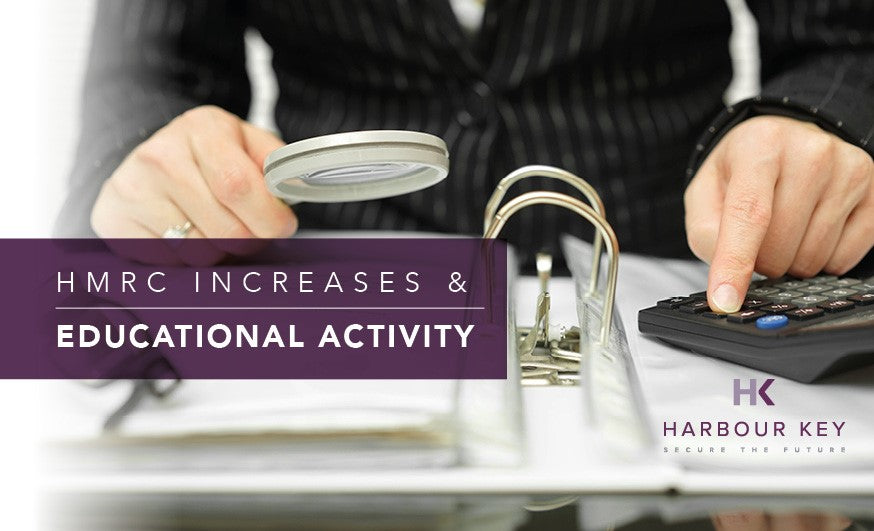
With tax revenues down, and with this position likely to remain for a significant period of time, we have already noted an increase in HMRC compliance check/enquiry activities in respect of 2019 self-assessment returns. In addition HMRC have launched, or are about to launch, a number of educational letters, what we call “nudge” letters. Both of these actions are in addition to HMRC activities in respect of auditing furlough claims (a power they have for six years) and checking the self-employed income support scheme grant claims.
Nudge letters are where HMRC send a letter of “advice” to target groups of taxpayers where, in their view, there is an underpayment of tax by that group. HMRC annual accounts for 2020, published on 5 November, reported the tax gap (amount of tax collected v the amount HMRC believe is due) fell to 4.7% in 2018-19, the lowest rate ever recorded. However, the report states that £31bn is still lost to fraud and error, some of this loss is explained as:
-
£4.6bn is lost to tax evasion;
-
£4.5bn to criminal attacks (targeted tax claims for example VAT fraud, or the furlough scheme claims for non-existent employees which are now coming to light);
-
£8.6bn to error as a result of people and companies failing to take reasonable care when reporting, hence the reason for the nudge letters.
A nudge letter is not the same as HMRC opening an enquiry but advising the taxpayer to check their tax reporting to make sure they are reporting everything correctly and not missing anything, generally listing areas where common errors or mistakes are made by the targeted group.
We have reported previously on the “nudge” activity in respect of taxpayers with offshore income and interests, following disclosures to HMRC from other tax authorities in non-UK jurisdictions, and we have assisted a number of clients who have received these letters over the last month, following the latest tranche of letters having been issued.
In addition to offshore activity, we are aware that HMRC are going to issue letters to other groups of taxpayers.
The first group are those taxpayers who were previously non-UK domiciled individuals to whom special tax rules apply regarding reporting and payment, but who have become UK domiciled from April 2017 (following the rule change where having been UK tax resident for 15 out of 20 tax years results in an individual becoming UK tax domiciled). The letter will remind the taxpayer of the change in the rules, their reporting requirements etc.
The larger group of taxpayers to be targeted with a nudge letter is what HMRC are calling persons of significant control, using the Company Law term for a person who controls a company, but in simple terms owner managers. HMRC believe that owner manager businesses are one of the biggest areas where tax is lost. The letter, which will be sent to owners who are within self-assessment and also to those who are not, will highlight some common errors where they believe errors or mis-reporting takes place, for example:
-
Use the company to pay for personal costs, for example decorating the shareholder’s/ director’s home, and putting the cost through the company as a repair expense;
-
Use of business assets, for example using a company van for more than incidental duties (Revenue employees are known to open enquiries based on seeing a work van in a supermarket or shopping center car park on a Sunday afternoon), or incorrectly treating a company car as a pool car when it is taken home by the director in the evening;
-
Transferring business assets from the company to personal ownership without paying market value or income tax on the market value;
-
Overdrawn director loans and not paying interest to the company at HMRC’s official rate, or being charged to income tax as a benefit in kind for an interest free loan.
The letter will invite individuals to review their tax affairs and, if necessary, amend their 2018/19 return. The letter will also ask individuals to include any additional income on their 2019/20 return. The campaign is to be run by the Wealthy and Mid-sized Business Compliance team.
These nudge letters have a dual purpose:
-
Firstly, in getting taxpayers to check their tax reporting and deal with any under-reporting and payments;
-
Secondly, if the taxpayer via a compliance check is found to have underpaid tax, HMRC may seek to increase the penalty charged for the failure, as the omission may not be viewed as an innocent error, but negligent, as HMRC told the taxpayer to check their affairs.
In addition to these letters, we have already reported on the powerful artificial intelligent software HMRC uses, known as Connect, which can search internal and external databases for information to check and confirm a taxpayer’s reporting.
With HMRC’s increased activity, it is important that taxpayers pay particular attention in dealing with their tax reporting and keeping detailed records to support the reporting. The first question on any compliance check is “please provide ……”. We also recommend that taxpayers take out tax investigations fee service, which pays your accountant’s fees for dealing with HMRC check/enquiry. This type of service may come free as part of a business membership, for example The Federation of Small Business, or alternatively, for Harbour Key clients where we prepare the tax return, we can arrange the service with a provider.




